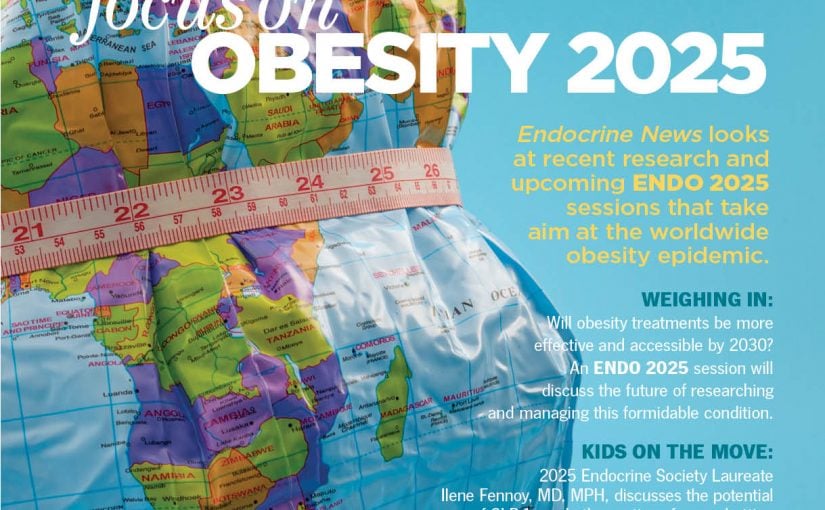Share
The HSD3B1 gene is positively regulated by androgens and androgen receptors (ARs), a finding that may play a role in more tailored treatment of prostate cancer, according to a study recently published in Endocrinology. Researchers led by Nima Sharifi, MD, of the Cleveland Clinic in Cleveland, Ohio, point out that prostate cancer requires gonadal testosterone...
Share
In the two decades since Stacy Lloyd was diagnosed with Von Hippel-Lindau, much has changed in genetic research, treatment, and counseling methods. Despite a complicated healthcare system, new methods are evolving constantly to treat, diagnose, and maybe even prevent this rare and often debilitating genetic disorder. The morning of June 28, 1996, Stacy Lloyd –...
Share
Positive top-line results this week were announced from the multinational, pivotal Phase 3 SONICS study evaluating levoketoconazole for the treatment of endogenous Cushing’s syndrome. Strongbridge Biopharma is marketing the drug as RECORLEV™ . The open-label, single-arm SONICS study achieved statistical significance of its pre-specified primary endpoint, with 30 percent of patients achieving normalization of mean urinary...
Share
Episode 4 of the Endocrine News Podcast has arrived, in which Angela Magdaleno, DO, of the Lehigh Valley Health Network, discusses preconception counseling for women with diabetes. Listen here: https://www.endocrine.org/podcast#enp4 And check out the links below for further reading: https://www.endocrine.org/meetings/endo-annual-meetings/abstract-details?id=6796 — ENDO 2018 abstract: Preconception Counseling: Frequently Forgotten by Primary Care Providers due to Multiple Barriers...
Share
The U.S. Food and Drug Administration this week approved iobenguane I 131 injection for intravenous use for the treatment of adults and adolescents age 12 and older with rare tumors of the adrenal gland (pheochromocytoma or paraganglioma) that cannot be surgically removed (unresectable), have spread beyond the original tumor site, and require systemic anticancer therapy....
Share
From osteoporosis to hypophosphataemic maladies, CEU attendees will become very well versed in endocrine disorders of the bone and skeleton. A few of the speakers gave a glimpse into what their sessions will offer in discussing how to care for patients with common as well as rare bone and mineral conditions. Each year, hundreds of...
Share
Congratulations to the 2018 awardees for this year’s Osteoporosis Fellows Series being held August 1 — 2 in Santa Fe, New Mexico. This two-day conference is designed for clinical endocrine fellows in adult and pediatric programs that are looking to update their knowledge of rare bone diseases and clinical best practices. The faculty will select the top four abstracts presented at the Osteoporosis conference for an additional speaking session at the Santa Fe Bone...
Share
While surgery has shown to be the most effective tool in combating obesity, younger patients are not being offered this option. Providers need to re-evaluate their own biases when treating these patients in terms of how could improve various quality-of-life factors as well as the young patient’s health. Fatima Cody Stanford, MD, MPH, MPA,...
As much as we know today about the endocrine system and the effects it has on the body, there remains so much that we do not know. Discoveries are made every day, and our understanding of the endocrine system is always growing and changing. Serving patients to the best of an endocrinologist’s abilities means being aware of all the latest developments in endocrine research. This includes the newest and most complete information concerning such endocrinology research topics as new treatments and new methods for disease prevention. Identifying symptoms and making the connections between those symptoms and endocrine disease can lead to greater understanding and ultimately better treatment for patients. More advanced prevention techniques can help patients stave off disease before it can impact their lives. Having the most current information can make a tremendous difference in the quality of life for your patients.
This section features some of the most current and forward-looking articles concerning the latest research in endocrinology. Written by and for endocrinologists, these articles are provided to keep you up to date with the most relevant developments in the field of endocrinology. You can access the information you need about new technology, new treatments and general information to help you serve your patients with better overall care. Our understanding of the endocrine system is always evolving. With Endocrine News, you can ensure that your knowledge of the field won’t be left behind. What’s more, your patients will always have access to the most advanced information out there.

